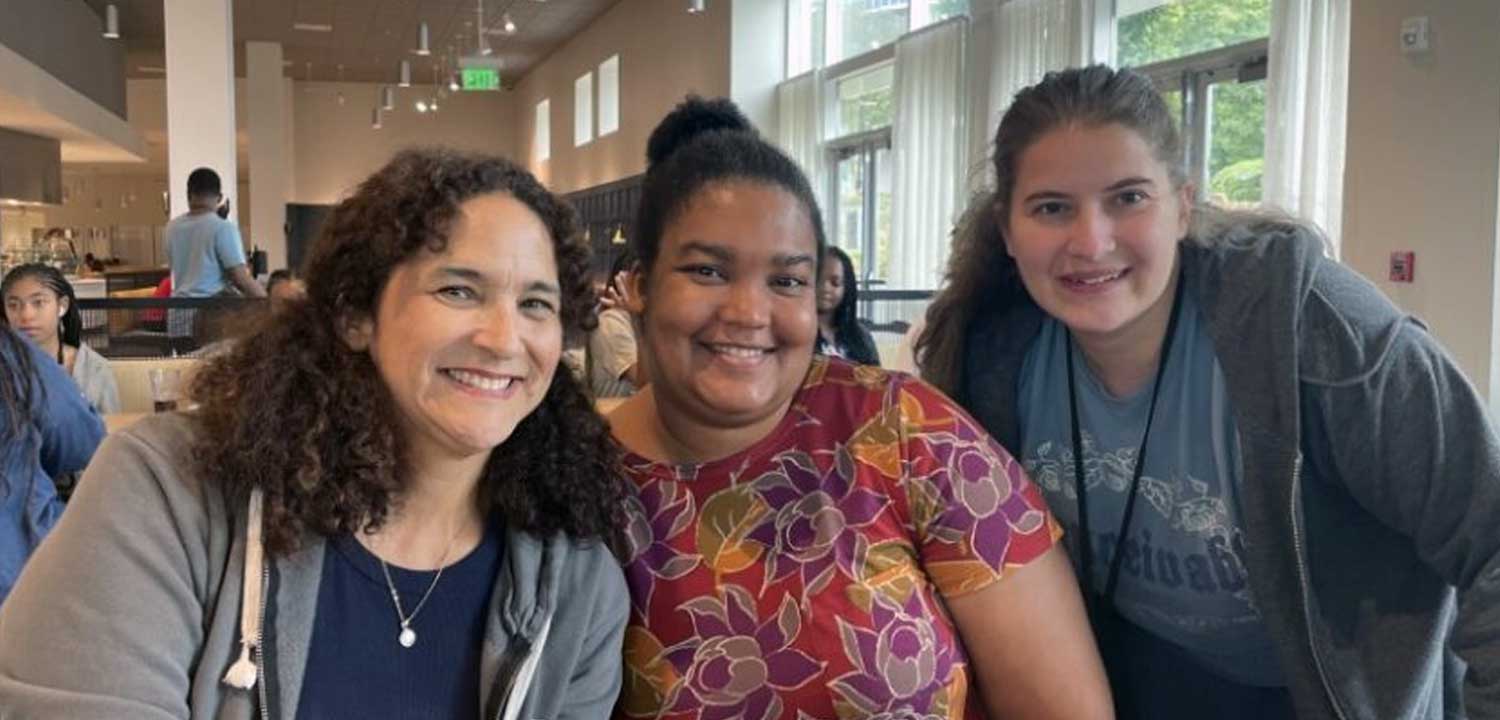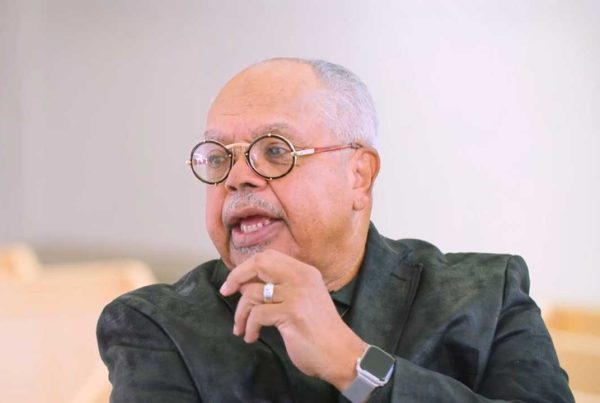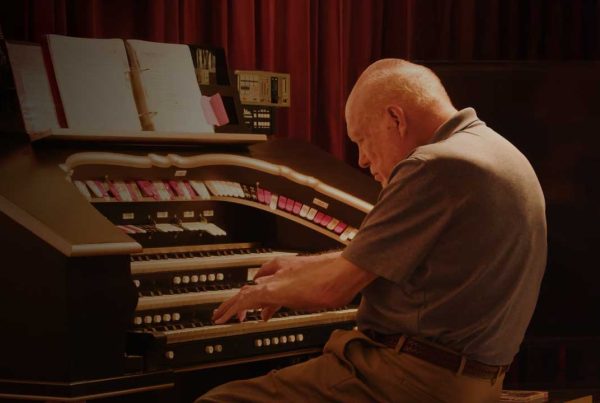Student Reflection on the Hispanic Summer Program
by Tyne Parlett, MDiv and MACMHC student
Fall is really in our midst today as I write this. The air feels thick with excitement. The trees are showing off their impressive colors as their last whisper to us before they fall. The bees are slowing down, and the cicadas are humming loudly. There is a crispness to the morning air even when the afternoon feels sticky and full. There is a season moving before us that we are trying to work in tandem with. Fall semester always feels like the hardest for me. Everything feels like it creeps up on you halfway through, even when you have color coded planners and perfect notes. I think that the Fall semester reminds us that slowing down and auditing the pace of your movement is critical. When the days shorten, and the darkness lingers farther into the morning, we often frustrate ourselves with what we have left to produce, and where we have unfinished corners of work, laundry, and unopened mail.
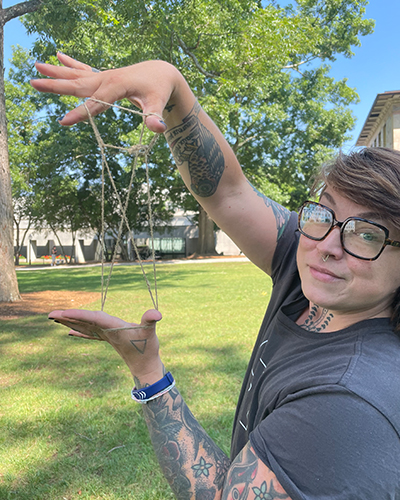 Fall for me reminds me that all of us have to constantly do the work of auditing. Auditing is a concept that many post-evangelical white middle-class people are using these days to talk about the space between deconstructing and then coming back to faith. Auditing faith, schoolwork, mental and emotional capacity, and even chore lists feel like an act of learning that we ought to be taught while in grad school. Auditing asks of us “what are the things that I am holding that are creating less room for what I want?” and in turn answering questions like “what can I pause or stop that will give me the space that I need in my current season to have more room?” Fall auditing feels adjacent to the act of physical and emotional spring cleaning to me, but just for the longer nights.
Fall for me reminds me that all of us have to constantly do the work of auditing. Auditing is a concept that many post-evangelical white middle-class people are using these days to talk about the space between deconstructing and then coming back to faith. Auditing faith, schoolwork, mental and emotional capacity, and even chore lists feel like an act of learning that we ought to be taught while in grad school. Auditing asks of us “what are the things that I am holding that are creating less room for what I want?” and in turn answering questions like “what can I pause or stop that will give me the space that I need in my current season to have more room?” Fall auditing feels adjacent to the act of physical and emotional spring cleaning to me, but just for the longer nights.
Fall of 2022 was also important for me as I was in my second semester of my first year. I felt like I had found my vibe. I knew my routine. I felt pressure but at least it was steady. A newsletter arrived in the Fall of 2022 to my CTS email that had a tiny little section that said “HSP Summer 2023”. The Hispanic Summer Program I knew nothing about was now accepting applications to study in Atlanta, Georgia over the summer for a series of intensive classes in theology, preaching, liturgy, and practices of hope. I was immediately interested in the program for a few reasons. First, I had never been able to have a true academic immersive experience. When in undergrad, I was a single parent, full time worker, and doing the best to mitigate the minority stress that queerness, poverty, trauma, and domestic violence left like footprints on my capacity. HSP was a chance to study in the way that felt so aligned with me, deep, immersed, laser focused, in community, struggling in tandem.
I applied for the HSP 2023 Summer Program in the Fall. Several other CTS students did the same, and one of them ended up attending with me. When I got the notice that I was accepted, I felt an embodied experience of conflict. I was accepted, and yet, would I have what it took? Would my whiteness be a barrier to my learning and to my impact on the others learning alongside me? Would my trans/nonbinary, radically left leaning, non-Christian identities feel like too much for the work? Imposter Syndrome and some variation of white guilt crept into my body. I nearly emailed the administrators to decline the spot for Summer 2023. But then, after some very intense internal auditing, I arrived at this understanding. I wasn’t chosen for this program by accident. I wasn’t applying for the program for the wrong reasons. In fact, there may be something I have to offer in return for the experience I would gain that could be important. So I set the decline email in the drafts of my email account and went to work.
As I prepared for HSP I began dreaming of how the experience would be. What would my professor be like? How would the student community operate? Was this going to be fun? HSP did the hard work of quelling the fears and needs for communication as we received monthly, then weekly, then near daily correspondence on what to expect, what to bring, how to prepare, and what not to do (which was freak out). I poured through the required and recommended reading that I was provided by my professor Dr. Yara Gonzalez-Justiano and reveled in the books that I was reading for the second or third time and those I had never seen. I let the impact of the Practical Theology syllabus sit with me. I would be writing my first-ever research project at the end of a course inviting the students to dream of what sustainable hope can be and how it can be created. I laughed a few times at the audacious expectation that I had found myself inside of.
I arrived with my CTS colleague in Atlanta on a sweltering 110-degree afternoon. We took a very long, very awkward Uber all the way to Emory University and did the long hike around the non-motorized campus trying to find keys, rooms, and air conditioning. Once we were settled into our dorms (think about every movie you have ever seen with dorms and then make the beds taller and thinner), I got to work. I color coded my assignments, I read the lectures. I made notes. I made friends. I went on Tinder dates in the city in my free time. And just like that, it happened. The HSP cohort ate together each meal, had classes in smaller groups, had welcome dinners, chapel services daily, and lived in the same dorms together. For two weeks we got to seep into each other’s lives, faith, practices, habits, snoring, and breakdowns. I found myself on the third floor of the dorms in an office with no AC that had a glass whiteboard for days, mapping out and dismembering concepts, ideas, things that were eating me. I came up with ten topics for research. I threw out twenty others. I showed up every day and practiced my Spanish, finessed my Portuguese listening skills, heard about people’s lives, hopes, and dreams. The first week felt like a year and the second week felt like the blink of an eye. I was taking in so much more than I could metabolize, but just like the squirrels outside while I write, I couldn’t leave a crumb behind. What if it was important? What if it was the string that I needed to thread these ideas together?
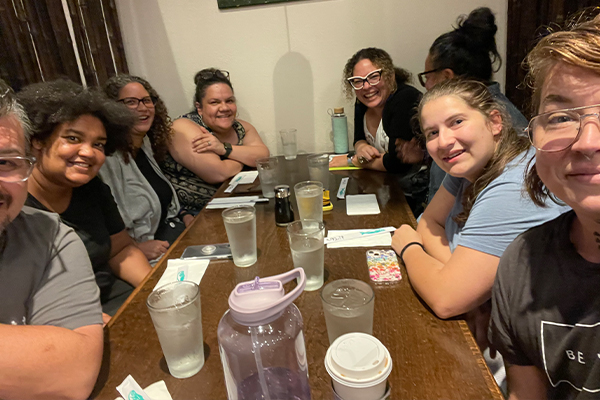 Once the wave of disruption to your life settles in during HSP Summer, you immediately find yourself preparing for this time you finally adjusted to nearly ending. We had co-created a space that held us all. We circled around one another’s lives, entering into understanding with each opportunity we could. We argued, some folks danced all night, some sipped wine out of a solo cup and cried together about life and love and the impossible challenge of doing it all. Familiarity began to settle in, and before we knew it, it was time to pack up, present our research, and then leave to complete the papers. The time that we spent there was as important as the work that we left with. The community that was formed still exists in my life today. We facetime, send coffee money on bad days, chat altogether in our day-one WhatsApp group message, and pray for those who are ill or meeting a goal they told us about. This was a hard-won kinship that was formed, and it grew from the cultivated space of HSP.
Once the wave of disruption to your life settles in during HSP Summer, you immediately find yourself preparing for this time you finally adjusted to nearly ending. We had co-created a space that held us all. We circled around one another’s lives, entering into understanding with each opportunity we could. We argued, some folks danced all night, some sipped wine out of a solo cup and cried together about life and love and the impossible challenge of doing it all. Familiarity began to settle in, and before we knew it, it was time to pack up, present our research, and then leave to complete the papers. The time that we spent there was as important as the work that we left with. The community that was formed still exists in my life today. We facetime, send coffee money on bad days, chat altogether in our day-one WhatsApp group message, and pray for those who are ill or meeting a goal they told us about. This was a hard-won kinship that was formed, and it grew from the cultivated space of HSP.
At home, it was back to the daily grind. I was working, parenting, pet-owning, preparing for Fall semester, and sweating thinking about writing my research paper. The same level of insecurity that I felt about applying to HSP happened once again about finishing my work. I wrote the paper and deleted it three times. I agonized over if this was good enough to send into the world. I scolded myself for wasting the amazing opportunity that HSP had given me. Then, I shut my computer and did nothing. I went back to the handwritten card from my professor and my fellow Practical theology students. I stared at the pictures of us playing in the courtyard. I fumbled around the patio with the small cloth with HSP in red marker from a chapel service that we were given to remind ourselves that fragments are needed for the whole. I reread the memory book that I made in class on the day we played with hope and art and listened to music on the floor. Then I arrived at the audit and reframe that I needed.
HSP wasn’t the end of the story. It was the beginning. The work that I was doing there didn’t need to be done, it just needed to be started. My research paper was on the sustainable practices of hope in transgender bodies and how using their experiences of death (familial, financial, social, communal, and bodily) can provide an empathetic entry point for colonized faith spaces to understand these bodies more fully like that of Jesus. It is through this parallel we can secure an (In)bodied hope for transgender people and those in dominant society that are humanistic and holistic. This did not need to be completed, it just needed to be said. I wrote the 30-page research paper in 3 days with a fervor that I had not quite experienced. It was after a coffee date with a friend who told me “Ideas wait in the ether for the right person to speak to them” that I decided to submit the work. The work was an audit of what I had wanted and expected, what I had experienced and gained, and what I needed from HSP to take back to CTS and continue to keep starting the conversations that only I can talk through.
If you are reading this, it is because it was good enough to make the newsletter. Therefore, here is my humble invitation. If you find yourself hoping for an experience that changes you, consider applying for HSP. If you are in need of a space that holds you, consider applying to HSP. If you are craving the experience of learning how to audit, consider HSP. And if per chance you are an HSP alumni reading this, I can’t wait to hear what you created with your time.
Tyne is a student at CTS in the MDiv and MACMHC degree programs. If you are interested in learning more about the Hispanic Summer Program or applying for the 2024 Summer Session, check out their webpage!

